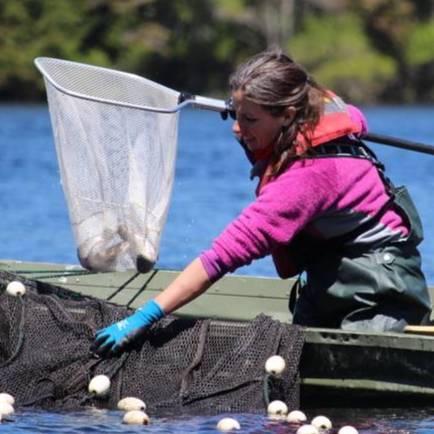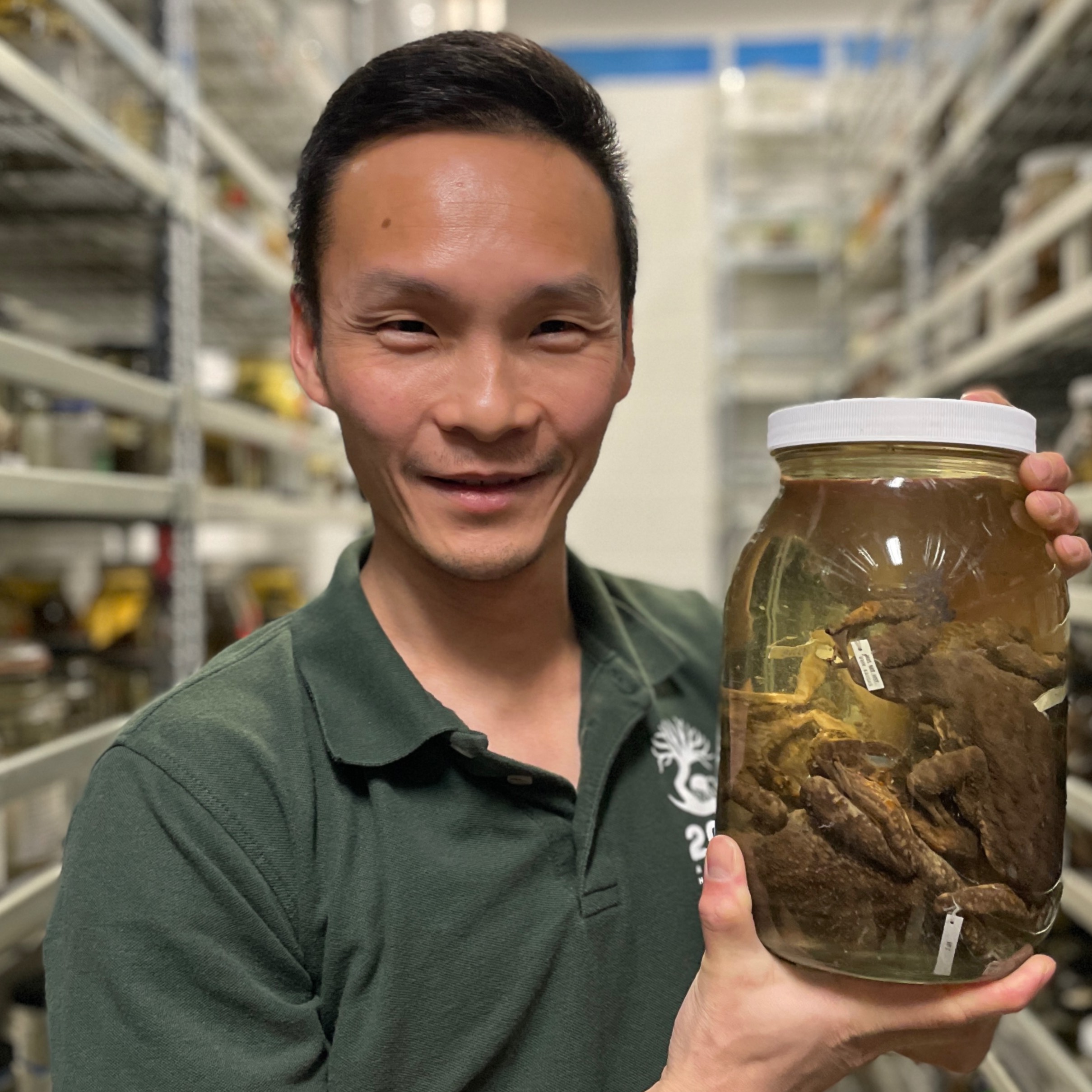Hyena Expert Kay Holekamp Receives Distinguished Animal Behaviorist Award
Michigan State University integrative biologist Kay Holekamp, one of the world's leading behavioral ecologists, has been awarded the 2019 Distinguished Animal Behaviorist Award from the Animal Behavior Society, in recognition of her outstanding career in animal behavior.
Holekamp, a University Distinguished Professor in the Department of Integrative Biology in the MSU College of Natural Science, studies mammalian behavioral development, its physiological substrates, the socioecological forces shaping it and its evolution.
Often referred to as the Jane Goodall of hyenas, which she describes as “the most misunderstood creatures in the world,” Holekamp has focused her studies on spotted hyenas in Masai Mara, Kenya, for more than 30 years. Her research investigates how social, ecological and endocrine variables interact during early development to influence adult behavior and fitness. Most of her work has been done with ground-dwelling squirrels and spotted hyenas.
“Although I have been given an extraordinary honor by the Animal Behavior Society, I was genuinely shocked to learn I had received the 2019 Distinguished Animal Behaviorist Award,” Holekamp said. “After all, previous recipients of this award include such luminaries in the study of behavior as E.O. Wilson, Richard Dawkins, Jeanne Altmann and Dorothy Cheney, and I believe my own contributions to the field pale in comparison to those of such august colleagues. I have just been very lucky during my career to have fabulous students and to work with such wonderful, fascinating and informative creatures as ground squirrels and spotted hyenas in the rich complexity of their natural habitats.”
Among Holekamp’s numerous research findings are that high-ranking members in spotted hyena clans, which are dominated by females, not only produce more offspring, but that their offspring have greater survival rates than lower ranking members. Interestingly, she found that these high-ranking hyenas, which live longer and appear to be in better overall health, also have longer telomeres, that is, caps at the end of each strand of DNA that protect chromosomes from deterioration, than their subordinates.
In her most recent publication, Holekamp and former graduate student, Eli Strauss, explore the value of social alliances among hyenas. Although spotted hyena clans rarely experience shifts in hierarchical dominance relationships, Strauss and Holekamp established that they can—and do—when lower-ranking members form coalitions against their superiors with other clan females, indicating that social alliances can facilitate revolutionary social change in nonegalitarian animal societies.
Another of Holekamp’s research areas has been on the selection pressures promoting the evolution of sophisticated cognition and large brains in animals. In a study involving mammalian carnivores, she and her students established the relationship between brain size and problem-solving ability, finding that a larger relative brain size did improve an animal’s ability to problem solve.
“The Distinguished Animal Behaviorist Award is well-deserved recognition of Kay’s extraordinary scientific contributions,” said Tom Getty, professor and IBIO chair. “She has led significant advances on a diverse range of topics in development, behavior, ecology and evolution, working with a very challenging study system at a remote field site in Kenya.
“I want to add that her extraordinary research productivity has not prevented her from also being an extraordinary colleague. In addition to her appointment in integrative biology, Kay continues to provide essential leadership and mentoring to participants in MSU’s Ecology, Evolutionary Biology and Behavior Graduate Program, which she directs, BEACON: An NSF Center for the Study of Evolution in Action and the MSU Museum, where she is the associate curator of mammals.”
The Animal Behavior Society is a professional organization dedicated to promoting and advancing the scientific study of animal behavior. Members of ABS study behavior across all levels of biological organization, under natural and controlled conditions, using descriptive and experimental approaches.
Banner image: Holekamp has focused her studies on spotted hyenas in Masai Mara, Kenya, for more than 30 years. Her research investigates how social, ecological and endocrine variables interact during early development to influence adult behavior and fitness. Most of her work has been done with ground-dwelling squirrels and spotted hyenas. Holekamp describes hyenas as “the most misunderstood creatures in the world.” Photo by K.D. S. Lehmann.



